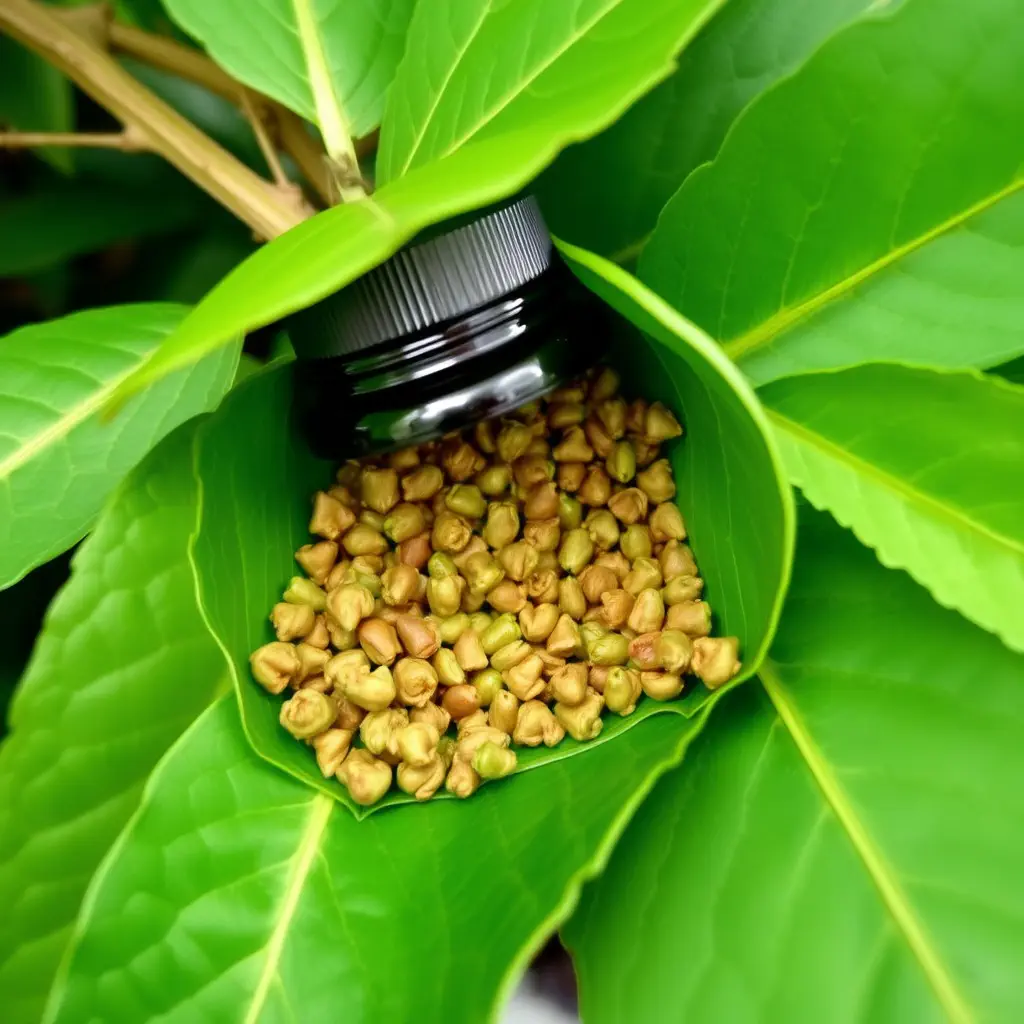Cortisol, a key stress hormone, governs the body's diurnal rhythms and is critical for metabolism, immune function, and sleep-wake cycles. Its morning peak kickstarts daily energy production and its decline at night sets the stage for restful sleep. Imbalances can lead to health issues like stress, fatigue, and insomnia. Kratom, a natural supplement, is being explored for its potential to regulate cortisol levels, particularly as an aid for insomnia sufferers by promoting relaxation and synchronizing circadian rhythms, thereby facilitating sleep. However, it's crucial to consult healthcare professionals before using kratom due to its complex interactions within the body and the possibility of affecting other health conditions. This balance between cortisol regulation and the careful consideration of kratom's use underscores the importance of understanding its role in improving sleep quality and overall well-being.
Cortisol, often dubbed the “stress hormone,” plays a pivotal role in the body’s daily functioning. Its delicate balance is crucial for maintaining homeostasis and responding to stressors. However, when cortisol levels sway from harmony, it can disrupt sleep patterns, leading to a host of health issues. This article delves into the intricacies of cortisol’s role in the body, examines the natural remedy of kratom for insomnia, and offers practical lifestyle adjustments to restore balance. By understanding the science behind cortisol production and release, exploring the potential benefits of kratom, and adopting tailored lifestyle habits, individuals can effectively mitigate the impact of stress and promote better sleep quality. Join us as we navigate the complexities of cortisol balance and uncover natural strategies to enhance your nightly rest.
- Understanding Cortisol and Its Role in the Body
- – The biology of cortisol production and release
- – The diurnal pattern of cortisol and its significance to bodily functions
Understanding Cortisol and Its Role in the Body

Cortisol, a pivotal hormone produced by the adrenal glands, is often described as the body’s primary stress hormone. It plays an integral role in the body’s ‘fight or flight’ response by regulating metabolism, reducing inflammation, and controlling the immune system’s responses. The hormone follows a natural circadian rhythm, peaking in the early morning to help kickstart the day’s energy and activity, before gradually declining as the day progresses. This diurnal pattern is critical for maintaining overall health and well-being.
Imbalances in cortisol levels can lead to a myriad of health issues, including chronic stress and fatigue. Seeking natural solutions to maintain cortisol balance has become increasingly popular. Kratom, a plant from Southeast Asia with alkaloids that can influence the body’s opioid receptors, is gaining attention for its potential to aid in managing conditions associated with cortisol imbalances, such as insomnia. Users often report that certain kratom strains can promote relaxation and support sleep, which may be beneficial for those experiencing difficulty falling or staying asleep due to high levels of cortisol at night, a phenomenon commonly linked to stress and anxiety. As with any supplement, it is crucial to approach its use responsibly and in consultation with a healthcare provider, especially considering the complex interplay between cortisol levels and overall health.
– The biology of cortisol production and release

Cortisol, often dubbed the ‘stress hormone,’ is a crucial steroid hormone within the human body. It is produced by the adrenal glands, specifically by the adrenal cortex, which is why it shares the same name. The hypothalamus in the brain oversees cortisol production through a complex feedback system involving the pituitary gland. This system is sensitive to circadian rhythms and life’s demands, ensuring that cortisol levels peak in the early morning to help individuals wake up alert and tapered off throughout the day to facilitate relaxation and sleep. An imbalance in cortisol levels can lead to various health issues, including difficulties with sleep, such as insomnia.
In the quest for maintaining cortisol balance, natural supplements like kratom have gained attention, particularly for their potential impact on sleep quality. Kratom contains compounds that may interact with the body’s opioid receptors and could influence the stress response system, potentially aiding in the management of insomnia. It’s important to approach such supplements with caution and under medical supervision due to the complex nature of hormonal balance and the potential for interactions with other medications or health conditions. As research continues to evolve, it may offer further insights into how kratom can be utilized in supporting cortisol regulation and improving sleep patterns for those experiencing insomnia.
– The diurnal pattern of cortisol and its significance to bodily functions

Cortisol, often termed the ‘stress hormone,’ plays a pivotal role in the body’s circadian rhythm and stress response. The diurnal pattern of cortisol—characterized by higher levels in the early morning and declining throughout the day—is crucial for regulating various bodily functions, including metabolism, immune function, and sleep-wake cycles. This natural fluctuation ensures that individuals are alert and responsive during waking hours before gently guiding them into restful sleep. In this context, the role of natural supplements like kratom for insomnia becomes apparent; kratom may help modulate cortisol levels to promote a more balanced circadian rhythm, thereby supporting healthy sleep patterns. By influencing the body’s stress response and potentially reducing cortisol at night, kratom can be instrumental in alleviating insomnia and allowing for restorative rest. This hormonal balance is not only essential for day-to-day well-being but also for overall health, as chronic disruptions in cortisol levels can lead to various health issues, including sleep disturbances and fatigue.
In conclusion, cortisol plays a pivotal role in the body’s stress response and daily rhythm, with its balance being crucial for overall health. The diurnal pattern of cortisol release, peaking in the morning and declining throughout the day, is a natural rhythm that harmonizes bodily functions. For those experiencing sleep disturbances, such as insomnia, exploring natural options like kratom may offer support in restoring healthy cortisol levels, thereby promoting more restful sleep and enhancing well-being. By understanding cortisol’s function and its patterns, individuals can take informed steps towards maintaining this delicate balance, which is essential for their health and vitality.






